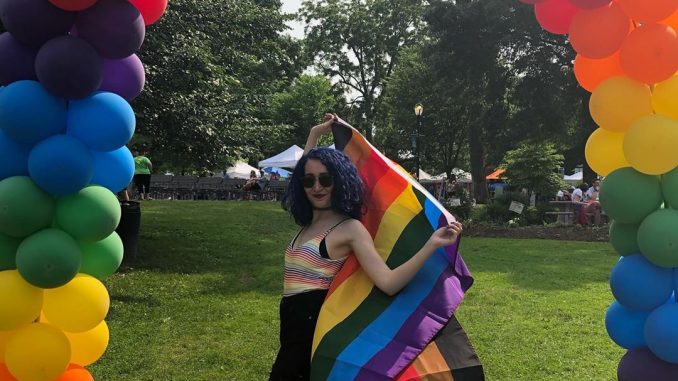
Liam Reilly
lireilly2@ursinus.edu
A personal pronoun is a word that replaces an individual’s name in a sentence. It also reflects an individual’s identity. Those who are cisgender, a term meaning their gender matches their sex, often use pronouns that match the sex they were assigned at birth (he/him for males and she/her for females). Transgender or non-binary people may utilize other personal pronouns. These pronouns may include ze/hir, they/ them, or ze/zir. There are also cases in which someone’s pronouns are a combination of existing pronouns. This can include he/they or she/ they. It is the role of the Ursinus community as a whole, especially those such as myself with the privilege that comes with being cisgender, to educate others about pronouns and how to successfully utilize them.
The more we use peoples’ pronouns, especially for members of the LGBTQIA+ community, the more validated and safe that individual becomes. Sharing one’s own pronouns also reduces the stigma LGBTQIA+ people face when sharing the pronouns they use. It is a simple way to be an ally.
There are a few ways in which Ursinus as a community can come together to support the LGBTQIA+ community. The first is the inclusion of pronouns as part of email signatures. The emails most students send tend to include their name, major(s), minor(s), class year, and sometimes positions in student organizations. Professors tend to end emails with their faculty positions, department, office hours, etc. Adding pronouns to this signature can make students more comfortable sharing their pronouns, and create a more supportive environment.
The next way the Ursinus community can come together is by including personal pronouns below one’s name on their dorm door. RAs already include the name(s) of students on each door, and including pronouns is a low cost add-on for those that are comfortable labeling themselves. It further normalizes the inclusion of pronouns and builds a more connected family unit.
A third way the Ursinus community can come together is by including personal pronouns in social media bios. Instagram, for example, allows users to create a short bio to express their interests, a snippet about them, etc. By including personal pronouns in said bio, students learn each other’s pronouns. This also works on Ursinus360, an application used to meet other students.
By eliminating the stigma around asking/ sharing personal pronouns and normalizing different identities, Ursinus becomes a more connected community. The campus will become more of a safe space by (at the minimum) following the suggestions above. As college students, Ursinus students are more than capable of using whatever name an individual tells them to use, and the same goes for pronouns. Out of common decency and respect, students, faculty, and administration alike should create a more inclusive Ursinus community.
